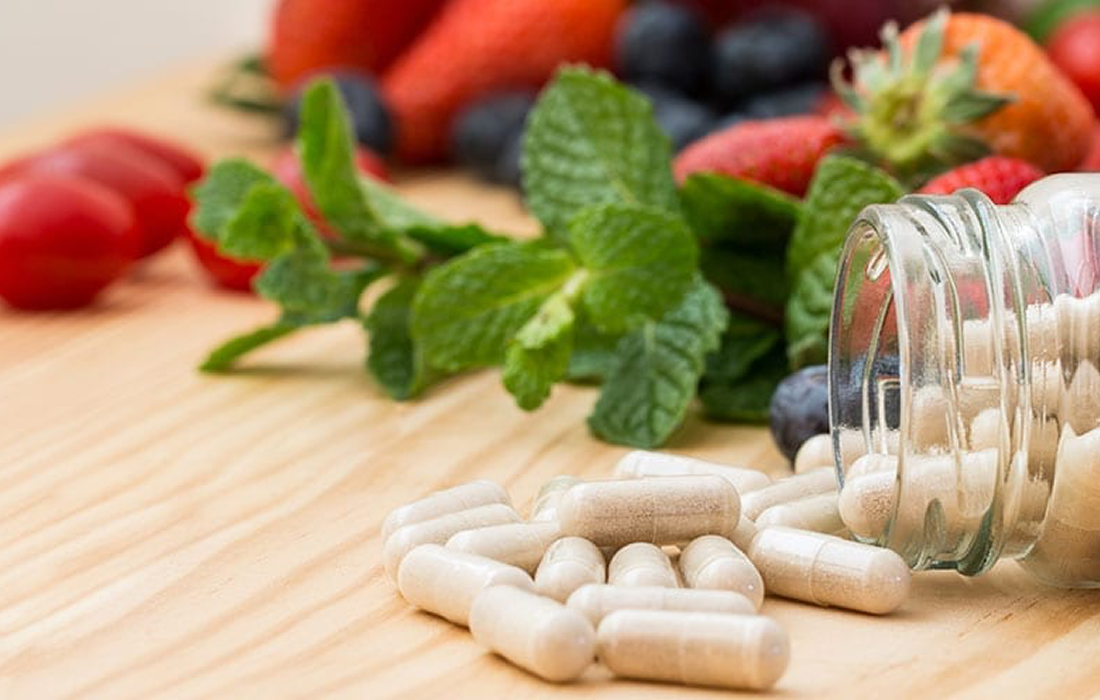Nutrition and Supplements
Use of dietary supplements in Hypertension and Diabetes
The practice of using nature as pharmacy dates back to antecedents and continues today as many of the medications currently in use are derived from plants. Dietary supplements are food products, extracts or concentrates that are intended to supplement diets because they contain certain dietary ingredients such as vitamins, minerals, herbs, and amino acids. They are usually found in many forms including tablet, capsule, powder, liquid, bar, soft-gel and gel-cap.
They are generally regarded as classes of foods not drugs. This is because like foods, most dietary supplements are not screened for safety and effectiveness following their removal from the regulatory authority of the FDA. While many supplements may be beneficial, they are not without risks. Generally, several claims have been put forward regarding the beneficial attributes of dietary supplements including prevention of acne, reduction of fats, low cholesterol content, rich fibre content, and the promotion of healthy skin
Hypertension is a highly prevalent chronic medical condition in which blood pressure in the arteries is elevated. It is a global health burden affecting both developed and developing countries. The condition is becoming an increasingly common problem and this may be attributed to the increasing longevity and prevalence of contributing factors such as obesity, physical inactivity and unhealthy diets.
Dietary interventions have been shown to reduce the occurrence of high blood pressure. In the United States, the combined use of herbal supplements as home remedies for the management of hypertension ranges at about 48%. Some of the supplements used are:
- Alpha-lipoic acid: available as tablets and capsules. Its target use organs are the nerve cells, liver and kidney. It can prevent cell damage, improve the body’s ability to use insulin. Limitations are that it may lower the blood sugar too much.
- Chromium: available as tablets and capsules. Its target organ is the pancreas. It can increase the metabolic activity of the pancreas and decrease blood sugar. At high doses it can cause kidney problems.
- Omega-3 fatty acids: available as capsules or oil. Its target organ is the liver and heart. They have shown to reduce the blood pressure, triacylglycerides, slow the development of atheromatous plaque in the arteries. At high doses it may interfere with other medications.
- Polyphenols: found in green tea and in dark chocolate. Its target organ is the vascular system. They can lower blood glucose by enhancing insulin action.
- Garlic: it can reduce cholesterol levels and glucose levels. Other effects are on coagulation, it can inhibit platelet aggregation and may prolong bleeding time.
- Magnesium: found in several foods and available in capsules and tablets. It may improve insulin response in the elderly and type 2 diabetics.
- Coenzyme Q: found in several foods like fatty fish, organ meat, peanuts and spinach and also available in capsules or tablets. It can improve long-term glycemic control in type 2 diabetes. Also, some medications such as glyburide used for diabetes treatment can reduce body stores of Co-Q10.
- Folic acid: found in spinach, broccoli, avocado, oranges, tomatoes and bananas. Also available as supplement capsules. Along with B12, prevents strokes and diabetic foot complications.
- Selenium: found in broccoli, raddish, cabbage, onion, garlic, cereals, meat, fish and eggs. Also available in supplement capsules or tablets. It can help take blood sugar into cells, protect against blood vessels and nerve damage from elevated blood sugar.
- Vitamin B6: found in brown rice, oats, wheat germ, banana, fish and salmon. Also available in supplement capsules. Combined with folic acid, B12 and B6 can help prevent diabetic blindness and vision loss.
- Vitamin E: found in vegetable oil, sunflower, nuts, whole grain, green leafy, avocado, carrots, almonds and peanuts. Also available in supplements. It can produce significant improvement in insulin mediated glucose utilization in healthy people and type 2 diabetes.
- Zinc: research has shown that it can protect pancreatic cells, prevent diabetes-related damage to blood vessels and nerves, while also lowering blood sugar levels.
Several reasons can be attributed to the upsurge in the use of dietary supplements for the management of diseases. Diabetes and hypertension represent a huge financial cost to the government and affected individuals, which is predicted to increase over the next 20 years. Not everyone can afford the latest technology and advancements in the treatment of these diseases; dietary supplements and pharmacological interventions are therefore necessary.
Another important factor is lack of response and unwanted side effects arising from the use of conventional treatments which have forced many patients to explore dietary supplements as alternative therapy.
Scientific evidence supporting the benefits of some dietary supplements is well established for certain health conditions like hypertension and diabetes. In affected individuals, inadequate nutritional intake of essential vitamins and minerals may worsen their conditions. Therefore, additional nutrients from supplements can help patients meet their medical needs and requirements.
Source:
Afolayan AJ, Wintola OA. Dietary supplements in the management of hypertension and diabetes – a review. Afr J Tradit Complement Altern Med. 2014 Apr 3;11(3):248-58.
https://www.ncbi.nlm.nih.gov/pmc/articles/PMC4202446/
Image from:

